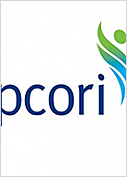Even before 2020, older Americans made up the majority of ICU admissions and deaths. In 2020, as a pandemic infiltrates every corner of the globe, older adults are disproportionately impacted, facing greater morbidity and mortality from COVID-19 than any other segment of the population. As a society we are tackling unsettled questions about how best to deploy limited resources as we confront mass critical illness on a scale not seen for generations.
To date, there has been very little study of the ethical and legal issues surrounding unregulated health research performed by "citizen scientists." A three-year grant from the National Institutes of Health will enable a team of 30 researchers from leading research institutions, health technology developers, and patient advocates to consider a wide range of issues, including the various types of mobile health research platforms, the potential applicability of various federal and state laws regulating research, possible models of self-regulation, and specific measures from online consent to integrating privacy protection in health apps.
This grant provides funds for the Patient-Centered Network of Learning Health Systems (LHSNet) to participate in PCORnet, a unique collaborative designed to link researchers, patient communities, clinicians, and health systems in productive research partnerships that leverage the power of large volumes of health data maintained by the partner networks. LHSNet includes partners across six states and nine academic medical centers, healthcare systems, public health departments and private health plans touching approximately 10 million individual lives, including patients in underserved and rural areas.
Biobanks containing participants' clinical data and genetic information have become important tools in genomic research to understand common, complex diseases, but they raise a number of ethical issues. In order to ensure that the public benefits from genomic research, it is necessary to understand the practices of researchers who are making use of biobank data. This systematic study of genetic researchers' views and practices with respect to biobank research informed polices to maximize the public health benefits of genomic research.
Future Tense is the citizen’s guide to the future. A partnership among Arizona State University, Slate and the New America Foundation, the Future Tense blog explores emerging technologies and their transformative effects on society and public policy.




